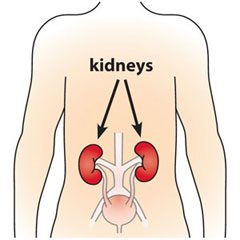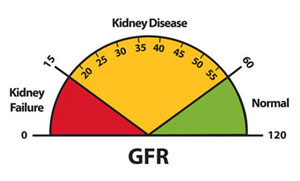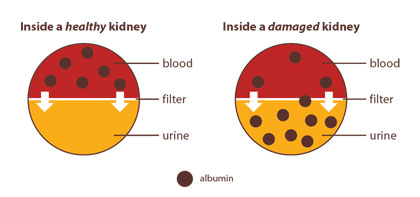
U.S. DEPARTMENT OF HEALTH AND HUMAN SERVICES
Diabetes and high blood pressure can damage the kidneys and lead to kidney disease. You need to get checked for kidney disease if you have one of these conditions. Here are some other reasons to get checked:
Diabetes and high blood pressure are not the only risk factors for kidney disease. You also should be checked if you have:

You have two kidneys located near the middle of your back, just under your rib cage. Their main job is to filter wastes and extra water from the blood to make urine. Wastes can build up in the body when the kidneys are damaged.
Two tests are used to check for kidney disease.


1. Manage your diabetes and keep your blood pressure at the level set by your health care provider. That means eating healthy and cutting back on salt. It also means being active and taking medicines as prescribed.
2. Get checked for kidney disease. The sooner you know you have kidney disease, the sooner it can be treated.
National Kidney and Urologic Disease Information Clearinghouse
Toll free at 1-866-4 KIDNEY
(1-866-454-3639)
www.nkdep.nih.gov
Make the Kidney Connection
www.facebook.com/makethekidneyconnection
National Diabetes Education Program
1-800-891-5390
www.kidney.niddk.nih.gov
National Diabetes Education Program
Toll free at 1-888-693-6337
www.ndep.nih.gov
The National Heart, Lung, and Blood Institute (NHLBI) Health Information Center
1-301-592-8573
www.nhlbi.nih.gov
PDF files require Adobe Acrobat
Page last updated: July 10, 2012